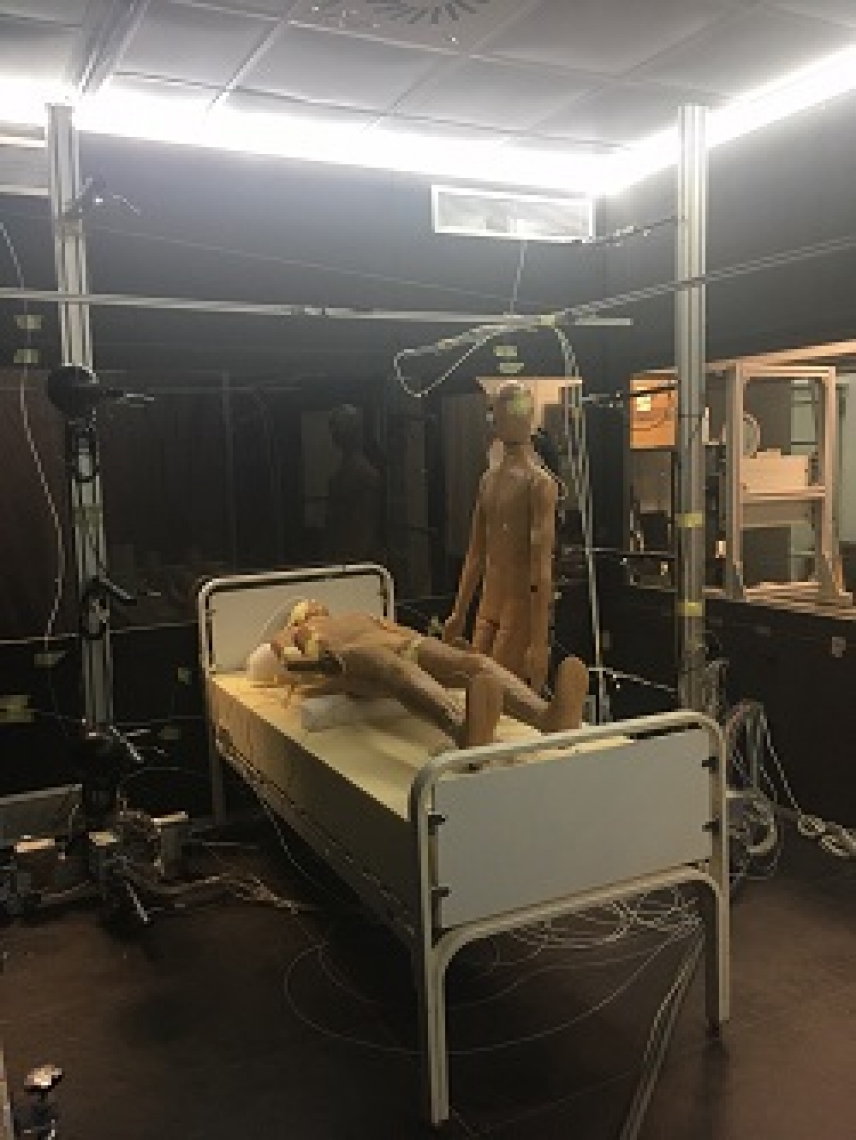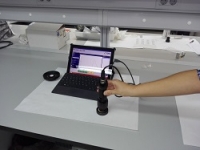Diverfarming drafts the map of crop diversification in Europe
Escrito por UCC+iThe project, within the framework of the Horizon H2020 of the European Commission, has carried out a bibliographical search on the state of crop diversification in Europe.
Intercalating crops and reducing or eliminating tilling practices. That is the basis of the diversification of perennial and woody crops that predominates in Europe.
Research into a new ventilation system for reducing hospital infections
Escrito por UCC+i
The Universities of Córdoba and Valladolid are looking at different ventilation systems for hospital wards
The serious risk of infection currently faced by hospital patients is a matter of concern for the scientific community. It is estimated that 6% of patients admitted to hospital contract infections, whose treatment across Europe costs seven billion euros a year. These infections may be spread by direct contact with infected subjects, through blood, through water or through the air. Airborne hospital infections have been studied by a research group at the University of Córdoba, which has assessed the risk of airborne infection as a function of the hospital ventilation system used.
UCO coordinates a new report on the Roman roots of European civilisation
Escrito por UCC+i
A study published in the journal Andalucía en la Historia hails the Roman Empire as history’s first globalised society
What aspects of Roman civilisation still survive today? We might equally ask ‘What aspects no longer survive?, according to the findings of research by Enrique Melchor Gil, Professor of Ancient History at the University of Córdoba, focusing on Rome’s legacy to present-day civilisation.
The research results, published recently in the journal Andalucía en la Historia, show that current town planning systems, municipal life, law, art and literature are all derived from, or based on, Roman models. According to Prof. Melchor Gil, “Surviving features of Roman society are to be found equally in Andalusia, Europe and the United States”; examples include the layout of today’s cities, which follows Roman patterns, and the way we pay tribute to great men. The Roman Empire also established Europe’s first monetary union, as a means of “pursuing one of the goals of the current European Union, the creation of a single economic space”.
Research reveals the efficacy of a new antibiotic active against pneumonia
Escrito por UCC+iA research group at the Department of Biochemistry and Molecular Biology, University of Córdoba, has studied the effects of rhodomyrtone on pneumococcal strains.
The emergence of antibiotic resistance in some of the most common pathogenic bacteria affecting humans has become a healthcare problem worldwide. Due to natural selection, the mere use of antibiotics against a pathogenic bacterial species eventually prompts them to develop resistance to those antibiotics.
Researchers block liver cancer in rats using a molecule found in citrus fruits
Escrito por UCC+iThe incidence of tumoral nodes fell to virtually zero in rats receiving hesperidin
Hesperidin is a molecule belonging to the flavonoid group, found in the pith of certain citrus fruits. It is believed to play a major role in plant defence systems, and recent research suggests that it could be used to fight hepatocellular carcinoma, the fifth most frequently-diagnosed malignancy worldwide and the third most common cause of cancer-related death.
Portable NIRS sensors enable instant analysis of milk composition in individual samples
Escrito por UCC+iThis applied technology uses a portable NIRS instrument for the on-farm measurement of milk nutritional components such as fat and protein content
This technique for the instant in situ monitoring of nutrient composition in individual cow’s milk samples, which obviates the need for laboratory analysis, was developed by a research team belonging to the AGR-128 research group at the University of Córdoba Faculty of Forestry and Agricultural Engineering, headed by Professors Dolores Pérez Marín and Ana Garrido Varo. The portable equipment, which can be used anywhere, takes only tenths of a second to measure major milk components such as protein, fat and dry extract; since there is no need to send samples to a laboratory and wait for results, a considerable amount of time can be saved.






